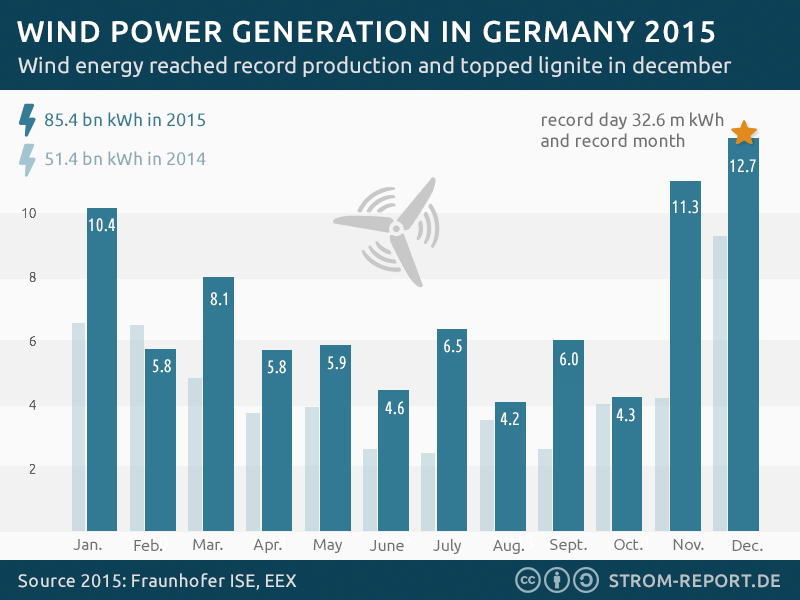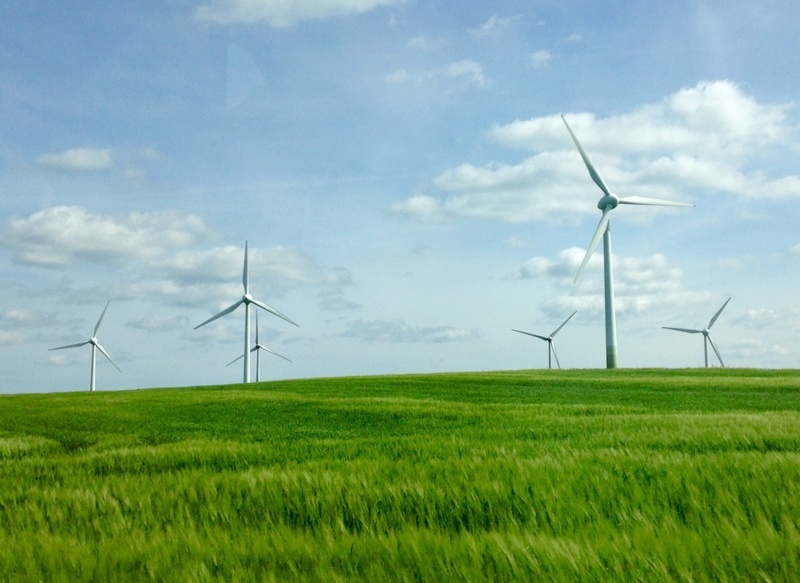News Release from windfair.net
Wind Industry Profile of
Comment: How German media choke on the 'Energiewende'
And while the renewable energy trade media – especially wind power – agree that 2015 was yet another record year, the general media draw quite a different picture.
Some days ago German Press Agency dpa sent out a note declaring 2015 a recession year for wind energy – and the rest of the press took over the figures without further prompting. For example, German magazine Focus wrote in its online edition: “In the first three quarters of the year 675 turbines with a total capacity of 1821 megawatts have been added, as is apparent from information provided by the German Renewable Energy Federation (BEE). The addition for 2015 is expected to reach 3600 MW in total and stays far below the level of the previous year, when there were 4750 megawatts of new turbines installed.”
A closer inspection, however, shows that the message only mentions the first three quarters of the year. The figure for the full year is just estimated. Furthermore, it is important to note that 2014 is to be classified as a special record year, as a result of the - then pending - reform of the EEG (the German feed-in tariff system). This led to a situation where many wind farm developers installed their turbines in a rush before the end of the year. Anyway, the statement only talks about the construction of new plants. How much wind power was produced by the plants is not mentioned.
Taking a closer look at the following numbers – which give ultimate information on the actual success of the German 'Energiewende' – the picture looks completely different: 85.4 billion kilowatt hours of electricity were produced by German wind turbines in 2015, representing an increase in output of 66% over the previous year according to Stromreport based on figures provided by the Fraunhofer Institute.
Graphics: Strom-Report
Furthermore, on December 21, the storm 'Bjarni' moved across Germany and ensured another record: 32.6 million kWh (!) of wind power were produced on that day – more wind energy than has ever been generated in Germany on a single day. This didn't only ensure that December 2015 was the most profitable month ever (with 12.7 billion kWh of energy generated), but also that wind was the most important source of energy in the overall energy mix and overtook lignite [11.1 billion kWh] for the first time ever. On a side note: The previous peak month was November 2015.
Overall, this leads to the fact that renewable energies were able to increase their share of the German power mix from 27.4 to 32.5 percent. As the Manager Magazin supplemented appropriately, the 2020 aim of the Federal Government is thus already “close enough to touch: A clean energy share of 35 percent.”
However, this kind of positive coverage has obviously not reached the general media. There are numerous stories to be read about an "expensive energy transition", the rising feed-in tariffs and threatening blackouts when nuclear power plants will be shut down. No wonder regarding the influence of lobbyists from the fossil fuel industry establishing their power and influence with the media for decades. Way too often still, clean energy is marked as a side note of green party voters even nowadays. Large achievements are said to be only temporary and happening on the backs of poor consumers who have to pay high electricity prices.
This move, however, misguides many journalists - a fatal error in times of excited masses screaming “lying press”. Only through education based on facts and not by parroting the requirements of lobbyists and big corporations, the media can meet their duties as a 'fourth force' in the state. And wind power has long been much more than a storm in a teacup!
"But it does move." (Photo: kr)
- Author:
- Katrin Radtke
- Email:
- kr@windmesse.de



